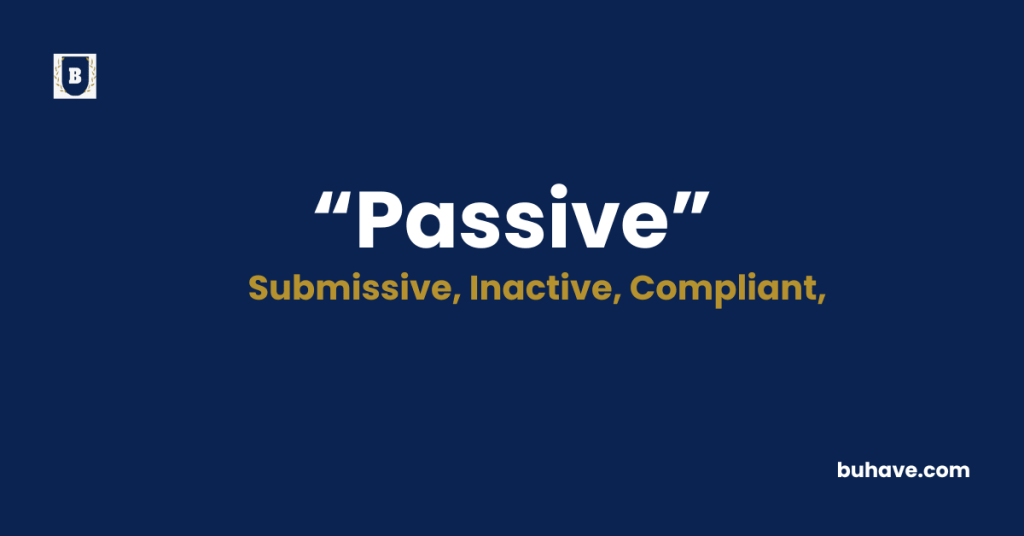The word ‘Passive’ (Adjective) describes someone who allows things to happen without active response or resistance, often showing a lack of initiative or assertiveness. In this guide, you’ll learn the full definition, synonyms, antonyms, etymology, and real-life examples of how to use ‘Passive’ correctly in sentences.
Passive Explained in Depth
A complete and detailed guide to the word Passive including meaning, definition, examples, etymology, synonyms, and antonyms.
Meanings of Passive
‘Passive’ refers to a state of inactivity or non-resistance. It is often used to describe people who don’t take action or show emotion, even in situations that might call for involvement or response.
Definition
Passive (adjective): accepting or allowing what happens or what others do, without active response or resistance.
Etymology
The word ‘passive’ comes from the Latin passivus, meaning “capable of suffering” or “enduring.” It entered English in the late Middle Ages, initially describing grammatical voice and later expanded to personal traits and behaviors.
Example Sentences
- She remained passive throughout the meeting, letting others make all the decisions.
- His passive nature often leads people to take advantage of him.
- In the passive voice, the subject receives the action rather than doing it.
- He took a passive role in the conversation, rarely contributing his thoughts.
- Some parents prefer a passive approach to discipline, avoiding confrontation.
Passive Synonyms
- Inactive
- Submissive
- Docile
- Yielding
- Compliant
- Unassertive
- Nonresistant
- Detached
- Apathetic
- Indifferent
Passive Antonyms
- Active
- Assertive
- Dynamic
- Forceful
- Involved
- Responsive
- Engaged
- Resistant
- Participatory
- Decisive
FAQs about Passive
Here are some frequently asked questions (FAQs) about the word “Passive”
1. Is being passive a bad thing?
Not necessarily. In some situations, being passive can help maintain peace or avoid conflict, but it may be problematic if it prevents personal growth or assertiveness.
2. What is the passive voice in grammar?
It is a grammatical construction where the subject receives the action rather than performing it, e.g., “The book was read by her.”
3. Can someone be passive and still be strong?
Yes, passivity doesn’t always imply weakness. A person might choose to remain passive as a strategic or thoughtful response.
4. How can one become less passive?
By practicing assertive communication, setting boundaries, and engaging more actively in decision-making.
5. Is passive the same as indifferent?
Not exactly. While both may involve inaction, indifference suggests a lack of interest, whereas passivity may still involve concern but no response.

















